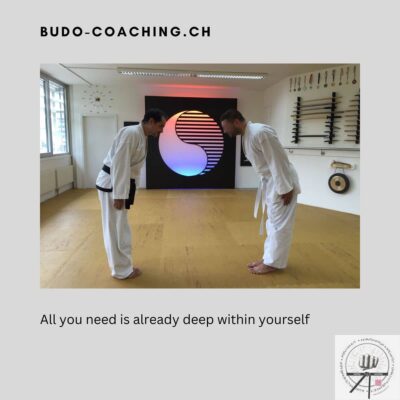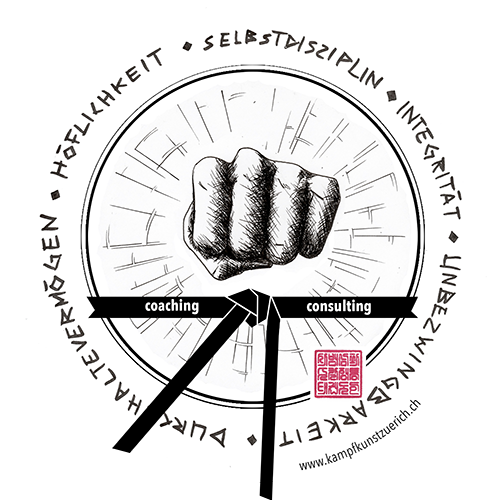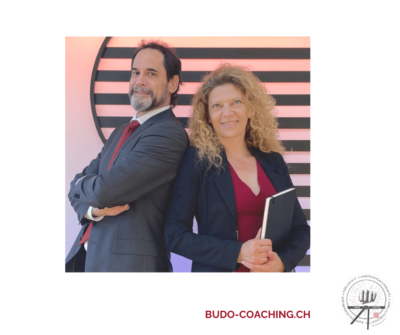Open up to your world of possibilities Do you find yourself constantly worrying about what…

Leadership beyond AI- 3 dimensions for sustainable success
A glimpse in the future of work
What will continue to change in the working world, and what will be the most crucial professional success factor for people in the future? It is the use of intelligence. But which intelligence?
Artificial intelligence is on the rise globally. The discussion about digitalisation and the topic of AI is now a part of our daily lives—on the one hand, feared because it might lead to job losses; on the other hand, embraced as daily support for many tasks.
The optimal synergy between humans and artificial intelligence will depend on how well we can use technology as a tool for support, rather than viewing it as a substitute for human abilities.
The fundamental human needs such as security, quality of life, social connections and personal growth will always remain central. So, the question we will increasingly ask ourselves is: What skills do we need to develop to successfully overcome the challenges posed by the proliferation of AI?
Digitalization and robotics are changing the landscape of work by automating and handling many tasks. However, there are skills that are challenging for machines to duplicate, and these become increasingly important: dimensions that go beyond mere hard skills.
Physical, social, and emotional intelligence
The triad of emotional, social, and physical intelligence will determine the difference and your success in the AI era.
Physical, social, and emotional intelligence enable us to:
- Understand complex social interactions.
- Recognize emotions in oneself and others.
- Express feelings, act empathetically, and nurture relationships.
Emotional Intelligence
Emotional intelligence in the workplace refers to how well a person can deal with their own emotions and the emotions of others. However, it is often challenging to keep a clear head or control oneself under pressure. This is where movement and mindfulness exercises for example come in handy: taking a step back, gathering data for decision-making, and then continuing with a clear mind.
Let’s assume a project is going awry, especially because a team member has repeatedly made mistakes. This increases pressure; the team’s mood has deteriorated. A practiced and internalized emotional intelligence helps us to:
- Stay calm, accept, understand, and regulate our own emotions.
- Address the emotions of team members, providing clear and constructive feedback describing the situation and mistakes with respect , agreeing on specific and concrete measures aimed at improvement, without affecting the self-esteem of the employee.
- Strategically think, collaborate with the team on solutions to get the project back on track, communicate clear instructions and expectations, and initiate necessary adjustments, such as resource and scheduling changes.
Social Intelligence
In an increasingly interconnected world, social intelligence becomes more crucial. Leaders should support their teams in building strong social connections, creating synergies, and effectively working in groups.
In this context, leaders know how important it is to:
👉 Invest time in team-building activities and encourage open communication to build a strong team culture. A socially intelligent leader creates an inclusive environment where diversity is valued, and all team members feel respected and heard.
👉 Shared values and goals are crucial factors. Leaders who exemplify clear ethical principles and act with integrity build trust.
👉 Given rapidly changing business environments, leaders should foster a culture of willingness to learn and adaptability. The willingness to acquire new skills and adapt to changes becomes a valuable asset.
Although emotional and social intelligence are often discussed, many are less familiar with the concept of physical intelligence.
Physical Intelligence
With physical intelligence, we refer not only to the body’s ability to move skillfully, learn complex movement patterns, master physical challenges, and effectively respond to various stimuli. It also encompasses the natural, automatic functions of the body—a form of human intelligence. It is an intelligence that relates to the perception and control of one’s own body in connection with space and the environment.
Paired with body awareness, which includes conscious attention and perception of one’s own body, physical intelligence is a crucial dimension in leadership as well.
This physical intelligence reflects from the inside out through posture and conduct. One way to engage with your own physical, emotional, and social intelligence is through the practice of a martial arts. For those who don’t have the opportunity, important foundations can be gained through Budo coaching.
The Budo path shows that mere knowledge is not enough – knowledge is not skill yet. Transforming theoretical knowledge into practical application is the crucial step. The ability to go through tough times and overcome them, experience and shift boundaries, as well as build social skills, makes the difference. Those who do not learn this and rely solely on technology will not provide added value to their environment in the future and will therefore not stand out.
The Budo path promotes, among other things:
- 👉 The ability to move smoothly and flexibly, not just keeping up with change but becoming part of it, whether in the job or daily life.
- 👉 The ability to understand and respond to your own body, often in an instinctive, subconscious manner.
- 👉 The ability to position your own body in space, assess distances, and act with confidence and ease in your own environment.
- 👉 The ability to connect body and mind to generate positive effects on mental processes and emotional well-being.
- 👉 The ability to recognize, receive and send nonverbal signals. This allows us to better understand and appropriately respond to body language, facial expressions, and gestures, which is particularly important as nonverbal signals often reveal more about feelings and intentions than verbal communication.
- 👉 The ability to regulate your own emotional and physical reactions in social situations. This can help avoid impulsive reactions, control emotional outbursts, and overall respond more calmly to interpersonal challenges.
- 👉 The ability to perceive and regulate your own energy, be present and attentive without being overwhelmed by negative vibes, consciously share positive energy, and create a supportive presence in groups.
- 👉 The ability to consciously perceive your own body, be aware of personal boundaries and communicating them clearly. This makes us also more perceptive to the boundaries of others, fostering healthier and more respectful interactions.
It is precisely these dimensions and forms of human intelligence that significantly differentiate us from AI—enabling us to navigate social situations by bringing understanding, interacting in a way that prioritizes our and others’ basic needs.
Emotional, social, and physical intelligence are essential components in our 1:1 coaching and group programs. We notice how developing them has become crucial.
In the dojo, as in professional life.
Curious? Then contact us now and learn more about our services!
We ensure that teams and professionals, through martial arts movements and Budo-wisdom, expand their scope of action—mentally and physically.



